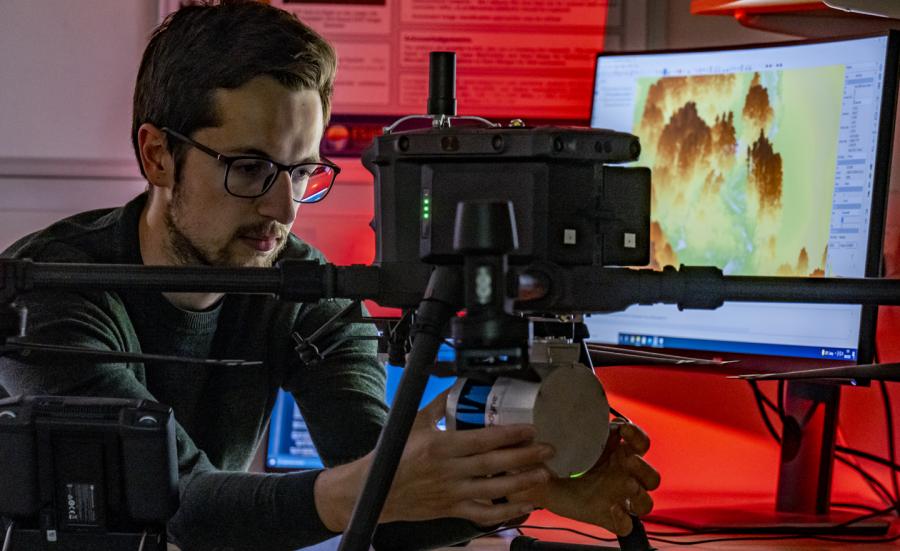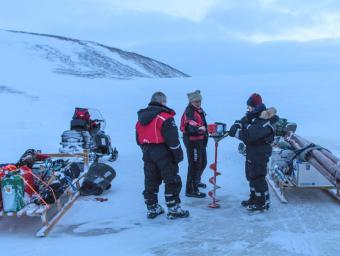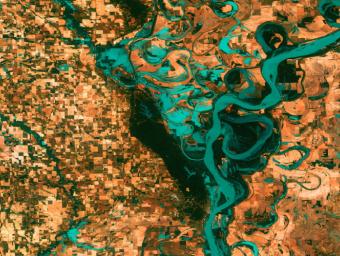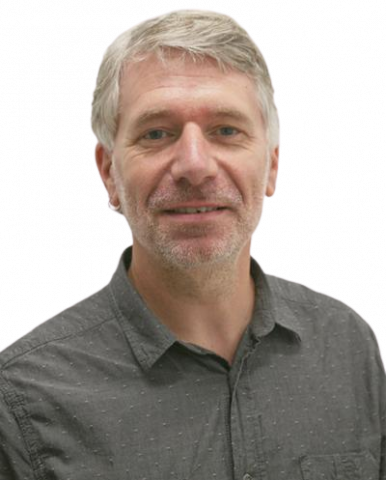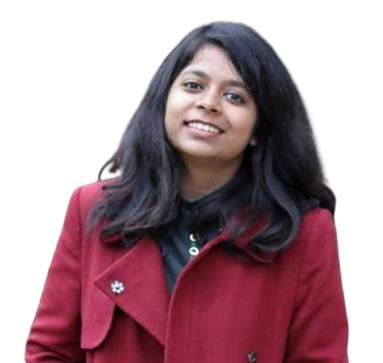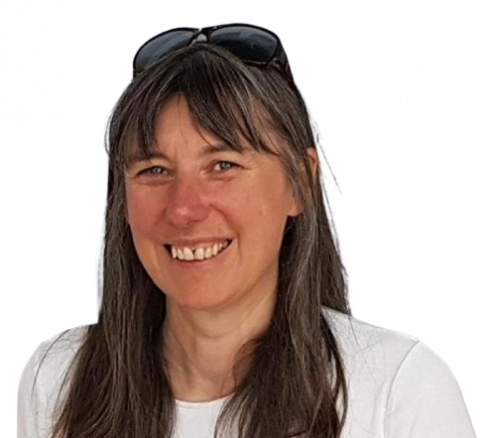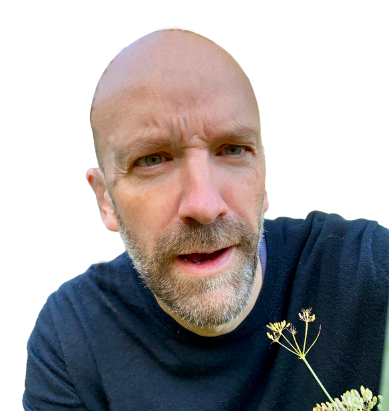Key facts
-
UK 7thfor geography and environmental science courses
Source: Guardian University Guide, 2023
-
UK joint 3rdfor grade point average (a measure of overall research quality)
-
Bronze Athena SWAN award
We're recognised for our ongoing commitment to addressing gender inequality
About the School of Geography and Environmental Science
We have a diverse academic community, working across human and physical geography, and environmental science.
Our experts carry out rigorous and novel fundamental research. This helps us tackle the interlinked environmental crises and social justice issues affecting our planet.
The impact of our work includes:
- measuring population mobility to help reduce malaria and COVID-19 around the world
- improving vegetation monitoring from space to help tackle poor harvests or plant disease outbreaks
- developing automated methods and software for geographical zone design (used in the 2001, 2011 and 2021 UK censuses)
- counting every person on Earth to assess the impact of growth, plan interventions and monitor development goals progress
As well as running a suite of undergraduate and postgraduate degrees, we also offer a range of products, services and consultancy to commercial enterprises. These can relate to our specialist laboratory equipment for example providing particle size analysis, X-ray fluorescence analysis, or scanning electron microscopy. Our GeoData unit manages, analyses and processes environmental data. They provide solutions-based consultancy services. We host experts in population mapping, WorldPop. Their work supports Sustainable Development Goal planning around the world.
Our environmental sensing facility uses pioneering technology combined with geospatial and environmental science expertise. The facility includes terrestrial and mobile laser scanning, and multibeam echo sounding. It can be used by commerical organisations and researchers alike.
The school is committed to being an inclusive and supportive environment where staff and students thrive.

Our impact
We work with governments and industry to address key problems such as social and health inequality and biodiversity and habitat loss.
In the 2021 Research Excellence Framework:
- we are joint third in the UK for the quality of our research (grade point average)
- 94% of our research outputs are rated world-leading or internationally excellent
- 75% of our impact case studies and working environment are rated world-leading
Learn about the impact of our work by exploring our research highlights:
- Putting children at the heart of climate policy
- Expanding the use of satellite data to provide real-world benefits
- Helping eradicate disease and assist victims of natural disasters
Education
We offer 4 undergraduate geography degrees. They allow students to study a balance of human and physical geography to match their interests.
Our environmental science degrees include a 3-year BSc and a 4-year integrated master’s in environmental science. This course gives undergraduates the opportunity to develop in-depth skills and specialist knowledge.
Our specialist geospatial, environmental management and sustainability MSc programmes give students foundational skills. These are valued by employers in fast-growing sectors of our economy including environmental consultancy and the geospatial sector.
We supervise around 40 postgraduate research students on our Geography and Environmental Science PhDs.

Equality, diversity and inclusion (EDI)
We're a diverse community with an inclusive and welcoming environment. Our bronze Athena SWAN award is recognition of our commitment to gender equality in higher education.
Visit our EDI page to learn more about:
- our involvement in the University’s Race Equality Charter group
- our committee
- our EDI team
- news, policies and support
- mentoring and buddy schemes
As part of the Faculty of Environmental and Life Sciences we offer Black Futures Scholarships. These provide funding opportunities for talented Black students who want to pursue postgraduate research with us.
Fellowships
We encourage applications from researchers looking for independent research fellowships in a geography or environmental science field, to consider us as an institutional host.
Our school offers a collegial and multidisciplinary environment, recognised for delivering world-leading and internationally excellent research.
We mentor applicants to support and strengthen their applications to UK and international fellowships programmes. Applicants are paired with a departmental host who will provide:
- mentorship and help with application writing
- introductions to potential collaborators
- introductions to existing fellows
- a tour of our department and world-class facilities
We also provide support letters and costing advice in advance of the application deadlines. Successful applications enter our formal fellowships scheme, which includes:
- training
- access to the latest equipment
- protected time away from teaching and administration responsibilities
- PhD studentship and new research grant opportunities
- opportunities for permanent positions
To make an enquiry or discuss an application, email either:
- fellowships champion, Dr. Eli Lazarus: e.d.lazarus@soton.ac.uk
- research lead, Professor Jim Wright: j.a.wright@soton.ac.uk
Current fellow Sien, explains how a fellowship has supported their work:
“My fellowship provides me the freedom to test risky new areas of research on processes of adaptation to coastal change, whilst also supporting my professional development into an engaged, civic, and responsible academic.”
Visit Dr Sien Van Der Plank’s staff page.
Our courses
Contribute to research in the fields of either geography or environmental science, by completing a PhD with us.
Research and business services
Our work has real-world impact whether we’re putting children at the heart of climate policy or helping eradicate diseases like malaria. Find out about our research activities and business services.
Our research community
Research groups bring together specialists to share knowledge and solve problems.
Welcome to the School of Geography and Environmental Science. It's a great place to study, work or collaborate with, on some of the most pressing challenges that society and the planet face.
I integrate southern urban craft economy research to teach development geography's limits and sensory heritage research for human geography's innovative creative methods.
My research is about glaciers, climate change and sensor networks. I’m currently President of the Quaternary Research Association and General Secretary of the European Geoscience Union.
My research focuses on sustainable pathways for decarbonising the energy sector, knowledge of which I bring to my GIS and environmental science teaching.
